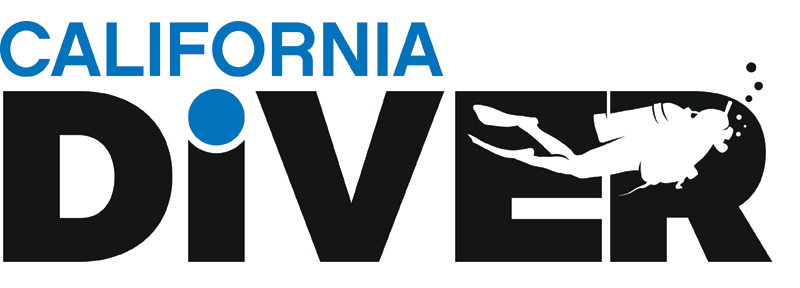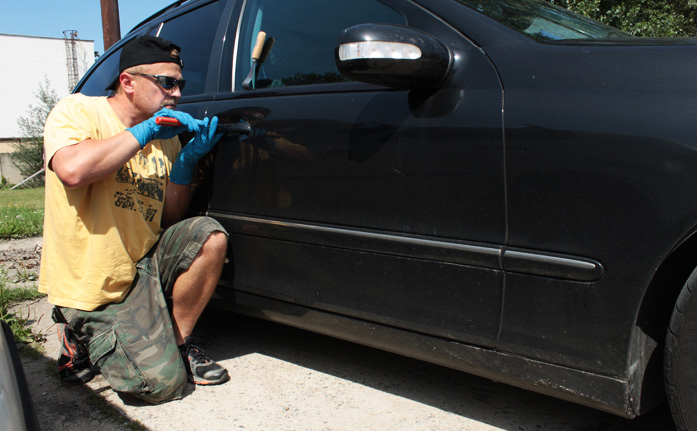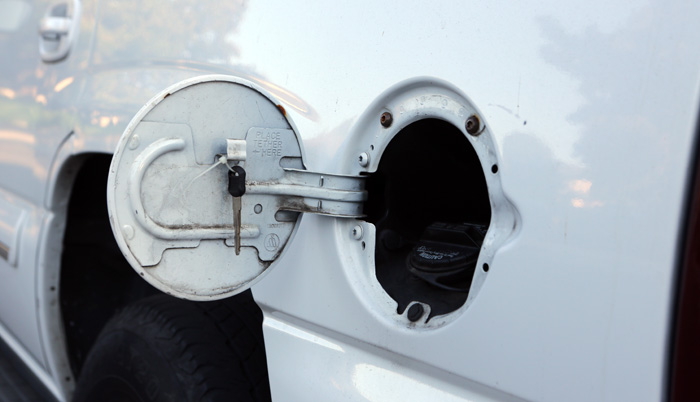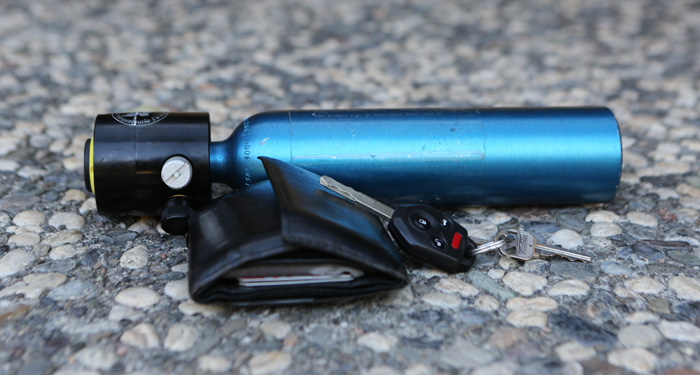Recently I’ve mme across divers who have shared stories on getting their vehicles broken into, their gear stolen, lost, etc. I’m writing this post to share some of the pitfalls I’ve seen divers/surfers/beachgoers make, in hopes that you won’t be next to repeat them.
I’m a police officer and fellow diver who works in the La Jolla area of San Diego. I’ve taken many police reports from people who’ve experienced the devastating loss of having their gear stolen, their vehicles broken into, and occasionally even their vehicles stolen in the beach areas. The following tips are my suggestions for ways to avoid having your incredible experience underwater become anything other than what it should be when you surface.
_________________________________________________________
Story by Travis Whipple
_________________________________________________________
TIP #1 – Lock your doors – ALL of them.
Roll your windows (all the way) up. Don’t leave anything valuable in sight. All the above seems obvious, but I guarantee that more than a handful of people reading this have waned on doing this. You wouldn’t believe the number of calls the police department gets because they see someone walking down a residential street trying car doors to see if they open, or just looking inside to see if there’s something worth stealing.
Don’t be “that guy” who thinks that no one will try opening the rear passenger-side door of your car (the only one you left unlocked while you went on a quick dive) parked on the busy Vallecitos St. Don’t leave anything worth stealing in sight on the interior of your car. Just because you’ve locked your door and rolled up the windows doesn’t mean that the thief won’t try to get inside.
Expensive, eye-catching items like purses, wallets, computers/tablets and computer cases are all “worth” the 20 seconds it takes for a thief to smash your window, grab it and be gone. He’ll be out of the area by the time police are likely able to arrive. Your belongings will be long gone, your car will be damaged and “open” to another thief, and you’re stuck with the $500 insurance deductible, the time it takes out of your day to file a police report, and the headache of having to remember what else may have been taken.
Tip #2 – NEVER “Hide-A-Key”
Never, ever (ever!) hide your key. Whether you spend the $5 on the magnetic Hide-A-Key box that you attach to the underside of your vehicle or you just tuck your key somewhere under your wheel well – don’t. This is the first place the thieves check. I’m telling you this from personal experience. I’ve taken numerous reports from victims who think the thief must have been in the area and saw when the victim hid his key, because it’s gone, his car is gone, and all of it’s contents are long gone.
Tip #3 – The Thief Will Take The Path of Least Resistance
Heed these words, people. There are two types of people in this world. Those who make it easy for thieves, and those who don’t.
Consider this scenario. You have your dive bag laid out cleanly on the grass in the park, next to your towel with your shorts (containing your wallet, keys, cell phone) right on top of it. Your dive buddy locked his shorts and all other items in his dive bag before he walked out into the great blue yonder. Will the thief spend time trying to cut a lock to get into a dive bag and potentially get nothing, or will he grab your shorts and walk off as if they were his own? Likely, it’s the latter (he’ll take whatever is easier and faster for him!). That’s another point I hear regularly. Victims often think that “because it’s so busy, someone will notice if a thief walks away with my things.” Unfortunately, the opposite is true. Because it’s so busy, no one knows whose gear is whose. Even if a police officer is sitting on the street right next to the park, even he won’t know that the guy who just grabbed those shorts is a thief taking something that doesn’t belong to him.
Tip #4 – Label Your Gear and Keep a Record of It
I’m a pretty new diver compared to most of you, but if you see me diving you’ll see my name on just about all of my stuff, and that’s for a myriad of reasons: in case I lose it, so someone doesn’t confuse it with their own on a dive trip/boat, etc. Dive gear is becoming much more technological, and I guarantee the thief who steals your $1,200 dive computer won’t know that he can get $1,000 for it on Craigslist. You’d probably be pretty upset to know that he just wanted to make a quick buck and sold it for $200.
Keep a record of your gear. I know some dive shops may keep a record of serial numbers to gear you bought from them, but do you think you’ll be able to remember which shop you bought what from several years down the road? It’s just easier to keep track of your serial numbers, model numbers, etc. on your own. I recommend doing so on a quick note on your phone. That way, in case it gets stolen, it’s a lot easier for police to recover from places like Craigslist, etc. Not only that, but it’s certainly more believable when trying to retrieve the item from someone who found it when you tell them the serial number instead of “well, it’s a silver GoPro.”
Tip #5 – Lose Something (in the water or at the park)?
If you did, your first step should be to check with lifeguards in the area to see if anything’s been turned in. Rarely do items from the beach or in the water get turned in to the police. If your dive computer, GoPro, or compass fell off while you were on a dive, check with the local lifeguard station within a day or two to see if it’s been found.
Tip #6 – If You See Something, Say Something
You just parked at The Marine Room to suit-up for a dive. There’s a guy walking back and forth who doesn’t look like he has any business in the area. He may even be looking into cars as he walks up and down the sidewalks. In this scenario, the least you could do is call the police department’s non-emergency number and report it. If need be, the dispatcher will determine whether or not to send an officer out to check him out. Perhaps it’s nothing, but that’s the only way that these guys are going to get caught (by saying something!).
Tip #7 – File a Police Report
Last but not least, if something happens and you end up getting victimized, you can typically file a police report. Believe it or not, most reports generated out of the beach area related to these types of crimes can actually be done online or by telephone. If you call the police department (SDPD non-emergency line: (619) 531-2000 expecting an officer to show up, you may have to wait a couple hours before an officer arrives to take your report.
Depending on the type of activity, an officer may need to come out and take the report. In other instances, you may be able to go home, gather your serial numbers and other important information that’ll be needed and file the report online or via phone, at your convenience. The dispatcher will make the distinction. Should you ever find yourself in that scenario, call the dispatcher and he/she’ll advise you on how to proceed. Remember, this isn’t CSI (from TV). An officer will do his/her best to write a report that will hopefully get your things back, but he can only do so much with the information you do or do not provide. 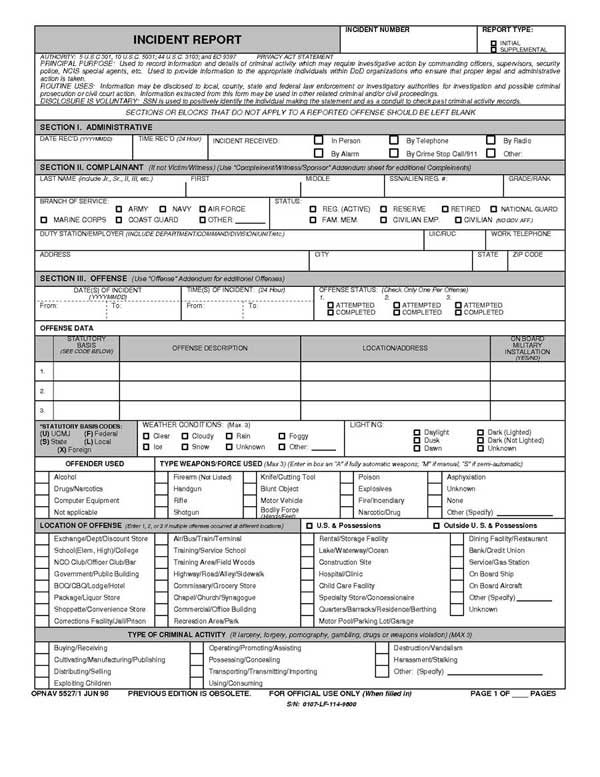 Filing a police report is also important because your insurance company will likely need a Case Number or Incident Number that the officer will provide to you. Also good to remember is that often times if your auto insurance doesn’t cover something, maybe your renter’s insurance or homeowner’s insurance policy will. Sometimes there’s no need to file a police report. For example: if something is of insignificant value to you, is indistinguishable from another similar item (black snorkel) or you don’t plan on filing an insurance claim, there’s not much to be gained from filing a police report.
Filing a police report is also important because your insurance company will likely need a Case Number or Incident Number that the officer will provide to you. Also good to remember is that often times if your auto insurance doesn’t cover something, maybe your renter’s insurance or homeowner’s insurance policy will. Sometimes there’s no need to file a police report. For example: if something is of insignificant value to you, is indistinguishable from another similar item (black snorkel) or you don’t plan on filing an insurance claim, there’s not much to be gained from filing a police report.
Just because something got stolen or went missing doesn’t mean you have to – it’s entirely up to you. Also, the report has to be taken by the agency where the crime occurred. If you live in Chula Vista, but the crime occurred in San Diego, call the San Diego Police Department. Whether or not you’ll get your belongings back is an entirely different story. The more information you have when you file the report-the better. If you have serial numbers, colors, receipts, etc., all of that helps. But if you’re the type that “I had my laptop stolen. I don’t remember what brand it was. I think I bought it a couple years ago, and don’t know how much it’s worth,” the likelihood of any police department finding it is zero.
Remember, prevention is the best strategy. If you do everything you can to prevent becoming the victim of a crime and adhere to the information in the above steps, I can tell you from experience that you’re much more likely to avoid a bad day at the beach.
Safe travels,
Travis Whipple
.
